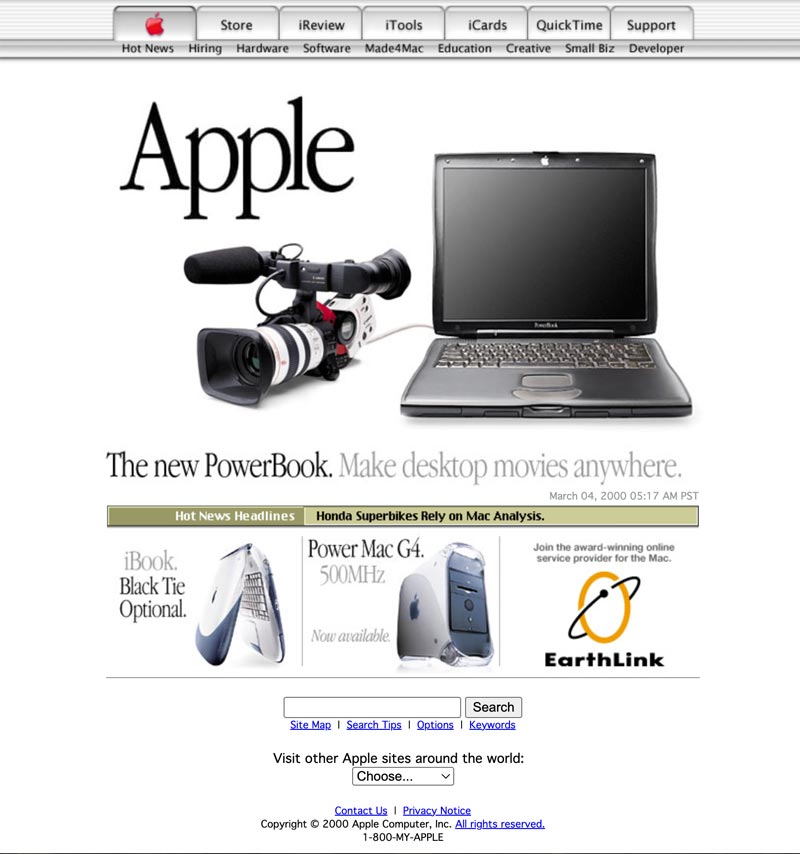In today’s digital-first business landscape, a website is often viewed primarily as a marketing channel—a place to showcase products and services, generate leads, and build brand awareness. While these marketing functions are undeniably important, this perspective severely undervalues what a well-designed, strategically developed website truly represents: a multi-faceted business asset that drives value across your entire organization.
At 321 Web Marketing, we’ve observed that businesses that treat their websites as strategic assets rather than mere marketing tools consistently outperform their competitors. The distinction isn’t just semantic—it represents a fundamental shift in how leadership teams should conceptualize, invest in, and leverage their digital presence.
Beyond Digital Brochures: The Evolution of Business Websites

When websites first became mainstream business tools in the late 1990s and early 2000s, they functioned essentially as digital brochures—static presentations of company information that changed infrequently. Today’s business websites bear little resemblance to these early iterations.
Modern websites are dynamic ecosystems that:
- Generate qualified leads and nurture them through sophisticated conversion paths
- Provide valuable data about customer preferences and behaviors
- Automate routine business processes and customer interactions
- Serve as knowledge bases for both customers and employees
- Function as direct sales channels with e-commerce capabilities
- Establish credibility and authority in your industry
- Create meaningful competitive differentiation
This evolution represents a significant shift in the fundamental value proposition of a website. Rather than simply marketing your business, your website actively works to increase operational efficiency, improve customer experience, and directly impact revenue.
Building Brand Authority: The Credibility Engine
One of the most valuable aspects of a website as a business asset is its ability to establish and reinforce brand authority. In competitive markets, perceived expertise and trustworthiness can be the deciding factors in a prospect’s decision to engage with your business.
Research consistently shows that over 75% of consumers judge a company’s credibility based on their website design. Furthermore, 94% of first impressions relate to your site’s visual appeal and functionality. These statistics underscore the critical role your website plays in establishing brand authority.
Your website builds authority through:
- Thought leadership content that demonstrates expertise
- Professional design that conveys competence and attention to detail
- Social proof elements like testimonials, case studies, and client logos
- Transparent information about your team, processes, and values
- Consistent messaging that aligns with your overall brand positioning
When developed strategically, these elements work together to create a powerful credibility engine that positions your business as an authoritative leader in your industry. This authority translates directly into business value—allowing you to command premium pricing, attract higher-quality clients, and reduce the sales friction that comes with being an unknown entity.
Your 24/7 Sales Team: Websites as Revenue Generators
Beyond marketing and brand authority, your website functions as a tireless sales representative that works around the clock to convert prospects into customers. Unlike traditional sales approaches that scale linearly with headcount, your website offers unlimited scalability—handling one visitor or one million with the same efficiency.
The sales functionality of a modern business website includes:
- Clear articulation of your unique value proposition
- Frictionless conversion paths that guide visitors toward becoming customers
- Interactive elements like calculators, configurators, and assessment tools
- Integrated scheduling systems that facilitate sales conversations
- Personalized content experiences based on visitor behavior and needs
- Automated lead nurturing sequences that maintain engagement
- E-commerce capabilities that enable direct transactions
When properly optimized, these elements create a sales asset that continuously generates revenue without the limitations of traditional sales teams. At 321 Web Marketing, we’ve seen clients achieve significant improvements in lead-to-customer conversion rates through strategic website enhancements that focus on sales functionality rather than just aesthetic improvements.
Quantifying Website Value: The ROI Perspective
Viewing your website as a business asset requires understanding its contribution to your bottom line. Unlike traditional assets that depreciate over time, a strategically developed website can actually appreciate in value as it accumulates content, authority, and optimization refinements.
Consider these concrete ways a website contributes to business value:
Lead Generation Engine: A website that generates 50 qualified leads per month, with a 10% conversion rate and an average customer value of $5,000, effectively produces $25,000 in monthly revenue ($300,000 annually).
Operational Efficiency: Self-service features, FAQs, and knowledge bases reduce customer service costs. If these elements save just 20 hours of staff time weekly at $50/hour, that’s $52,000 in annual savings.
Competitive Advantage: Websites that outperform competitors in user experience and functionality can increase market share and command premium pricing, potentially adding 10-15% to profit margins.
Business Valuation Impact: For businesses seeking investment or acquisition, a high-performing website with demonstrable ROI can significantly increase valuation multiples.
These quantifiable benefits illustrate why forward-thinking businesses allocate resources to their websites based on expected returns rather than arbitrary marketing budgets. The investment perspective—viewing website development as building an appreciating asset rather than an expense—fundamentally changes resource allocation decisions.
Future-Proofing Your Digital Asset
Like any valuable business asset, websites require ongoing investment to maintain and increase their value. This isn’t simply about keeping content fresh or fixing broken links—it’s about strategic enhancement that responds to changing market conditions, customer expectations, and business objectives.
Effective asset management for your website includes:
- Regular performance analysis and optimization
- User experience refinements based on behavioral data
- Content expansion that builds authority and addresses emerging customer needs
- Technical improvements that enhance security, speed, and functionality
- Integration with evolving business systems and processes
- Adaptation to new devices and access methods
At 321 Web Marketing, we encourage clients to adopt an asset management mindset for their websites, with scheduled reviews, improvement roadmaps, and ROI-based enhancement decisions. This approach ensures that your digital asset continues to appreciate rather than deteriorate over time.
The Competitive Necessity of Website Investment
In today’s business environment, a strategically developed website isn’t a luxury—it’s a competitive necessity. Companies that underinvest in their digital presence put themselves at a significant disadvantage, regardless of how strong their products, services, or teams may be.
The competitive landscape shows that:
- 70% of consumers research companies online before making purchasing decisions
- 57% of B2B buyers have already made their purchase decision before ever contacting a supplier
- Companies with optimized websites experience growth rates 2-3 times higher than competitors with outdated sites
These statistics underscore why progressive business leaders have shifted their thinking from “How little can we spend on our website?” to “How can we maximize the return on our website investment?”
Conclusion: Reframing Your Website Strategy
As we’ve established throughout this article, your website represents far more than a marketing channel—it’s a multifaceted business asset that drives value across your entire organization. From establishing brand authority to functioning as a tireless sales team, from improving operational efficiency to directly impacting business valuation, a strategically developed website is one of the most valuable assets your business can possess.
For business leaders seeking competitive advantage, the implications are clear:
- Evaluate your current website from an asset perspective, measuring its contribution to overall business value
- Invest in your website based on expected returns rather than arbitrary budget allocations
- Develop a strategic roadmap for enhancing your website’s value over time
- Regularly measure and optimize website performance against business objectives
At 321 Web Marketing, we partner with forward-thinking businesses to develop websites that function as appreciating assets rather than depreciating expenses. By taking this strategic approach, our clients consistently realize returns that far exceed their investment, positioning them for sustainable competitive advantage in increasingly digital markets.
Your website isn’t just a marketing tool—it’s one of your business’s most valuable assets. Treat it accordingly, and the returns will follow.

